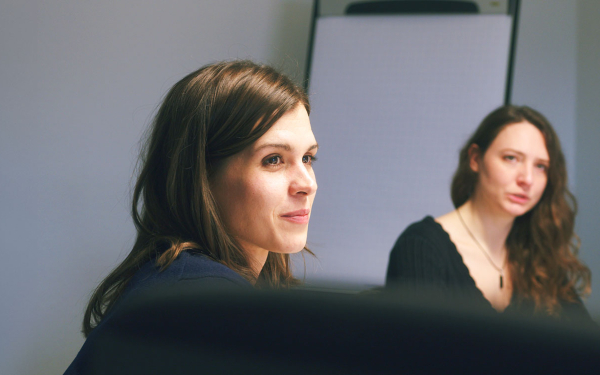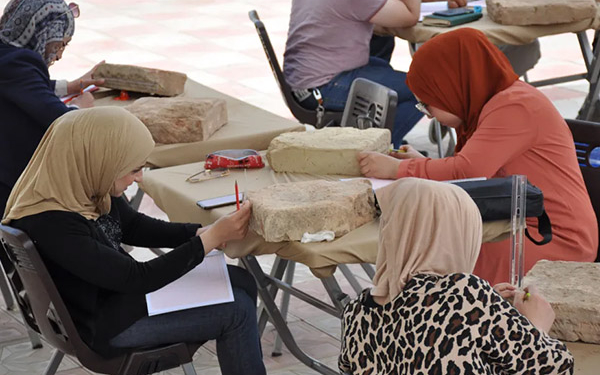Politics and wealth: a lopsided alliance?
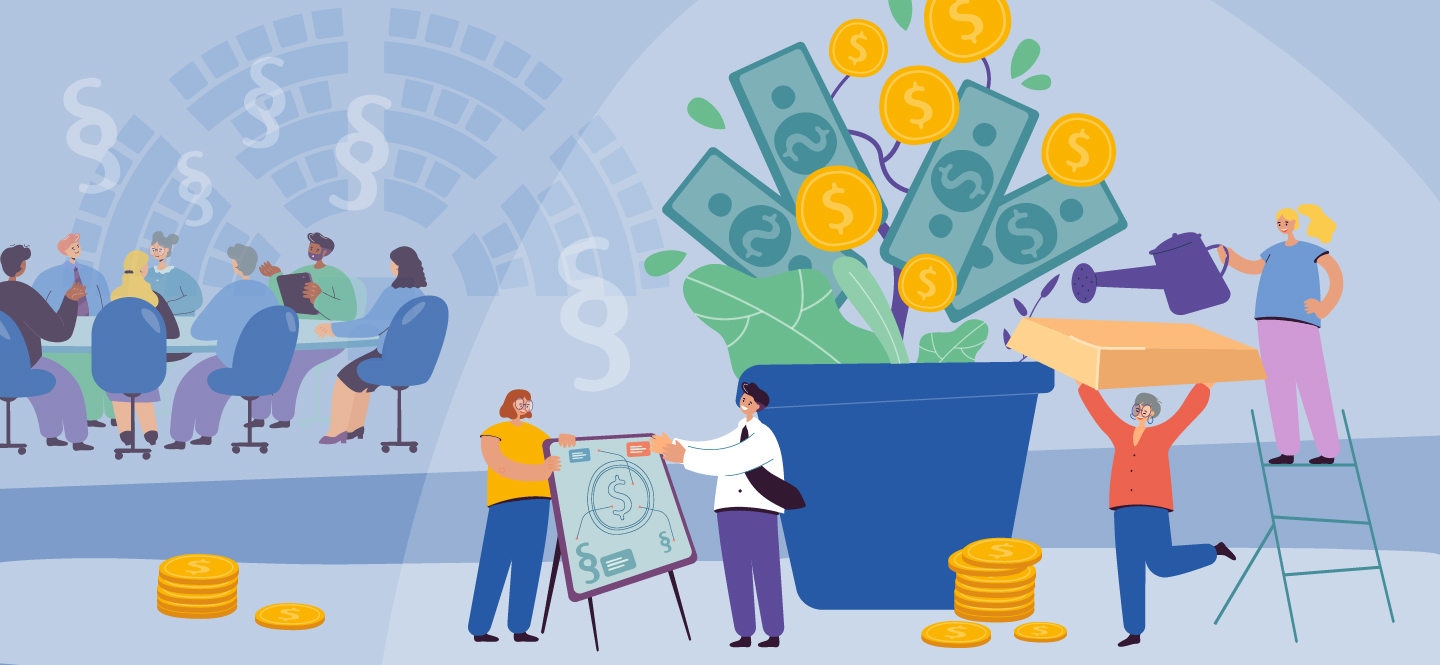
SurfUpVector, Andrii – www.istockphoto.com
A small, rich minority is becoming increasingly wealthy. Eva Wegner and Miquel Pellicer ask: How does politics contribute to growing economic inequality – and whose interests do MPs actually represent?
The development of top incomes and private wealth is closely linked to political decisions. And those who decide on legislation generally have more wealth and privileges than the average members of their electorate. Do politicians represent the upper income groups – to which they themselves belong – better than others? And if so, what are the personal and financial backgrounds of MPs who pursue wealth-enhancing policies?
Prof Dr Eva Wegner and Prof Dr Miquel Pellicer have been asking themselves these questions in their international research project Politicians, Policies and the Reproduction of Wealth since the beginning of 2024. Based at the University of Marburg, the political scientist and the economist are leading an interdisciplinary team of experts in political science, law and economics doing research in Brazil, the UK, South Africa, and Germany.
If you look at the development of inequality, there is a lot of movement at the top.
Growing concentration of wealth
The development of wealth clearly shows how important this topic is. In recent decades, wealth around the world has become increasingly concentrated among a small group of people. The growing differences in income are leading to social and economic tensions in many societies and presenting countries with major challenges.
‘If you look at the development of inequality, there is a lot of movement at the top,’ explains Miquel Pellicer. In Germany and other Western countries, not much has changed within the middle class – the differences between higher and lower earners in this group remain similar. However, the gap to the very rich is widening because their wealth has grown particularly strongly in recent decades. And if inequality is very high because the rich are getting richer, says Miquel Pellicer, then there is an increased tendency for these people wanting to have a say in politics.
In many countries, we can currently see that politics is increasingly being influenced by the wealthy
‘In many countries, we can currently see that politics is increasingly being influenced by the wealthy. Poorer people, on the other hand, have much less influence,’ confirms Eva Wegner. Democracy, however, has a claim to equality. ‘And if this claim doesn't apply, then citizens become disillusioned, don't participate in elections or perhaps even vote for parties that are anti-democratic,’ she continues. According to Wegner and Pellicer's research hypothesis, the fact that politics tends to increasingly serve the interests of upper income groups plays a decisive role here.
‘Our aim is to better understand the political mechanisms behind economic inequality,’ explains Eva Wegner. Specifically, it is about tax legislation, such as corporate tax, inheritance tax or capital gains tax.
Wealth research instead of poverty research
The two have been working on economic inequality for a long time. Even before their time at the University of Marburg, where Eva Wegner heads the Department of Comparative Politics and International Development Studies at the Institute of Political Science and Miquel Pellicer holds a professorship for Inequality and Poverty at the Centre for Conflict Studies, they worked together at the same research locations.
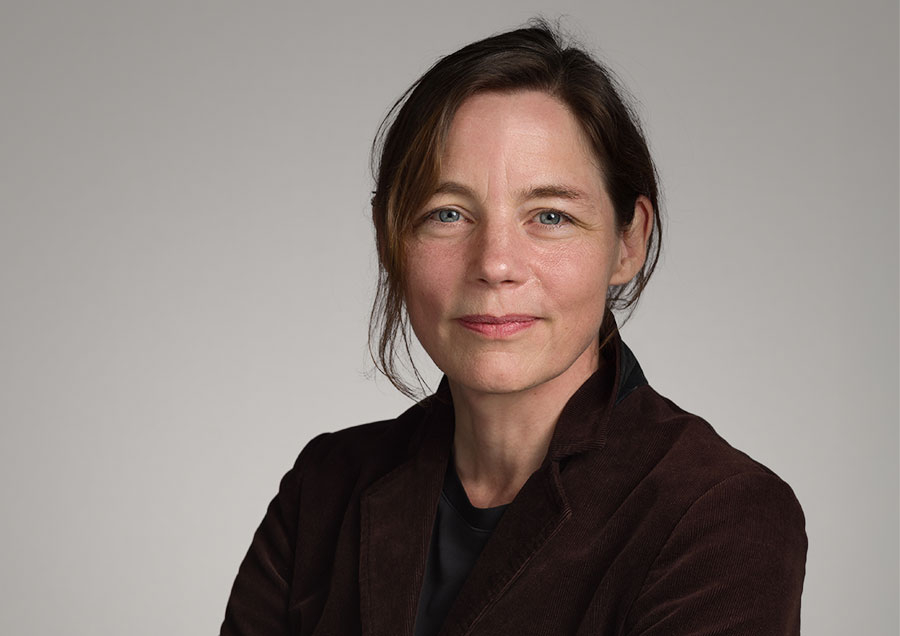
Eva Wegner is Professor of Comparative Politics at the University of Marburg.
They met in Italy during their doctoral studies and subsequently taught and researched in Berlin, New Haven, Rabat, Barcelona, Cape Town, Hamburg, Duisburg, and Dublin. There, they investigated inequality with a focus on the political behaviour of poorer people, with a particular focus on the Global South. ‘Our focus so far has always been on the lower end of distribution,’ says Eva Wegner. Extreme poverty, she explains, has been successfully reduced in recent decades.
However, inequality is still growing, upwards so to speak, and it exists in both the Global North and the South. To better understand this inequality, says Miquel Pellicer, ‘you have to look at the developments at the top of distribution process – at what makes the rich get richer and richer’.
A goal that the Volkswagen Foundation is also pursuing. With the Perspectives on Wealth funding initiative, through which the project led by Eva Wegner and Miquel Pellicer is financed, the Foundation is encouraging a change of perspective: from poverty research to the many facets of the phenomenon of wealth.
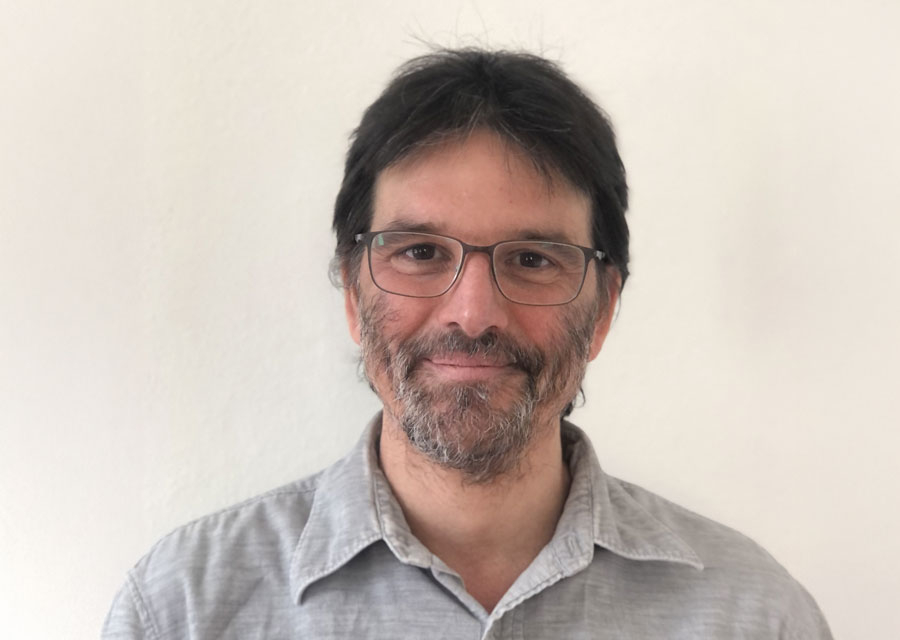
Miquel Pellicer is Professor of Inequality and Poverty at the Center for Peace and Conflict Studies at the University of Marburg.
Why do MPs favour rich people?
‘Empirically, it has often been shown that laws and reforms passed in many countries are more in line with the preferences of the wealthy,’ says Miquel Pellicer. This has been proven in the US, Germany, Spain, Norway and Sweden, for example. Very different subject areas are affected: Foreign policy, abortion rights, but also social and tax policy. It is not yet clear why this is the case – and this is where the project comes in.
There are people who own a lot of property and at the same time decide on property tax and rent controls.
There are various assumptions: Politicians usually belong to the wealthy section of society themselves. Their biographical background has probably given them a certain image of how the world works. Only a small proportion have probably experienced what it is like to have to make do with very little money. On the other hand, the political reforms they adopt also affect them. ‘Property, for example, is a classic investment worldwide – even among MPs,’ explains Eva Wegner. ‘So, there are people who own a lot of property and at the same time decide on property tax and rent controls.’
The research team is interested in certain characteristics of MPs, in particular their background, their financial interests, and their networks. The key questions: Are these characteristics the trigger for the imbalance in policy-making? Do politicians make wealth-enhancing decisions because they have internalised a certain world view – or because they are pursuing their own financial interests?
Broad overview and deep insight
The project is a combination of broad overview and deep insight. A broad overview, since the research team collects and analyses characteristics of economics and finance ministers for 50 democratic countries. This includes, for example, biographical data or membership of company boards. ‘We link this data to wealth-related political decisions that were adopted in these countries between 2005 and 2020,’ explains Miquel Pellicer.
In addition to this quantitative approach, case studies provide an in-depth insight. In the four project countries Brazil, Germany, the United Kingdom and South Africa, the researchers collect and analyse various data from tax policy reforms and members of parliament. ‘The first thing we are interested in is the information that comes from the disclosure of additional income,’ says Eva Wegner, explaining that Germany has the least transparency in comparison. Here, MPs do not even have to disclose whether they own property. And when it comes to share ownership, politicians in the UK, South Africa and Brazil are also obliged to be more transparent than in Germany. In addition to the disclosures, their social characteristics are scrutinised: Have they earned a degree? If so, what? Have they completed an apprenticeship?
‘We link these characteristics to their positions in parliament, which they express in speeches and questions,’ says Eva Wegner. ‘We are interested in whether different personal characteristics lead to specific positions on tax policy – regardless of party affiliation.’ Brazil is an illustrative example. All members of parliament there have the right to table amendments to draft legislation – and they make good use of this right. ‘We can easily understand whether someone is tabling amendments for an area to which they have biographical or financial connections.’
In the case studies, the project team also looks at the networks of politicians who are particularly influential or particularly active when it comes to asset-related laws. These include club memberships, for example, but also the sources of party donations. ‘We have decided not to include social media profiles and the tabloid press as sources, even if the connections to wealthy business people or lobbyists could be easily recognisable there,’ says Wegner. ‘We only use what is verifiable and does not violate the personal rights of the MPs.’ This includes: their own websites, reputable newspaper reports, interviews, parliamentary behaviour and attendance or speeches at events.

The project team is currently planning to expand their analysis of networks. Soon they no longer just want to analyse who politicians interact with, but also how they and other people in their networks talk about certain topics. ‘Ultimately, we are interested in whether there are networks of different actors who talk about certain things in a similar way and thus promote the same patterns of legitimisation and lines of argumentation,’ explains Miquel Pellicer. Behind the analysis of networks is a network itself – well-rehearsed and organised across four countries.
Four countries, but only one soup
In addition to Miquel Pellicer and Eva Wegner, 16 people are working on the project. They are based at the Fundação Getulio Vargas in São Paulo, the University of Strathclyde in Glasgow, the University of Cape Town and the Philipps University Marburg.
‘With international projects like this, it's often the case that everyone investigates the same thing in their own country, so they start by cooking their own soup, so to speak, and then the results are thrown together,’ explains Eva Wegner. ‘In contrast, we work in an extremely interlinked way; not by country, but by project module.’ The team is multidisciplinary: the lawyers in Brazil are analysing politicians' networks in all four countries. In South Africa, the economists work on the impact of tax laws on the distribution of wealth. In the United Kingdom, political scientists are analysing the profiles of politicians. ‘And here in Marburg, we are primarily focussing on the question of how wealth-enhancing laws are created.’
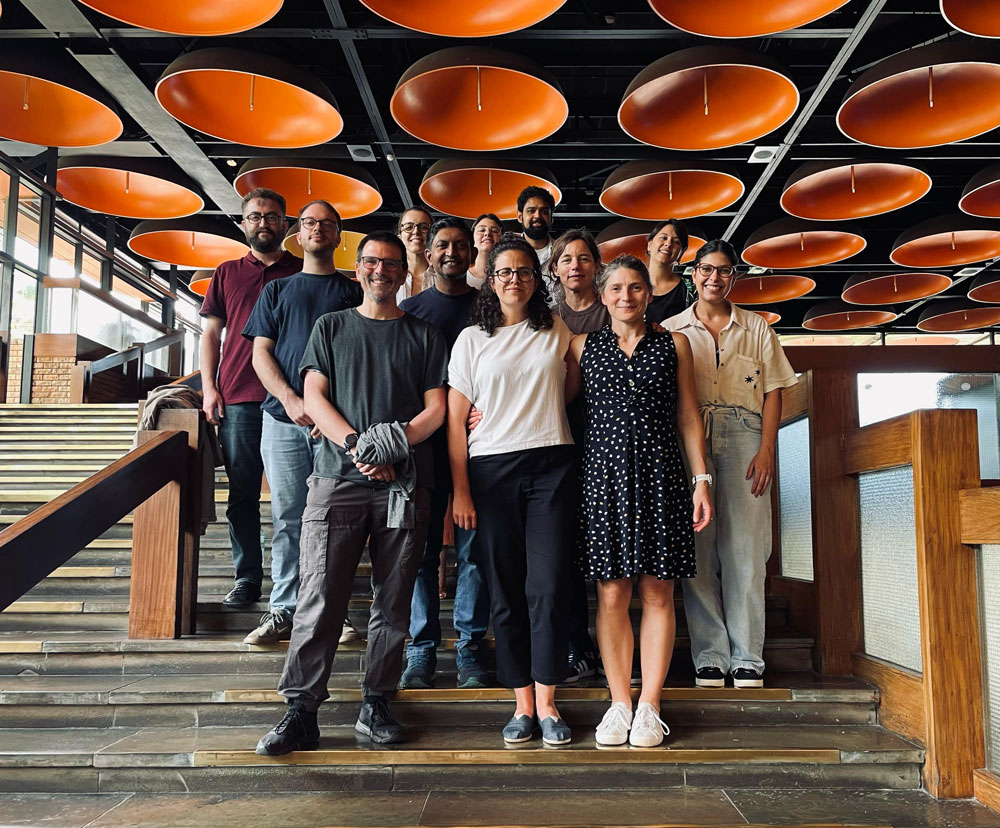
Project meeting in Cape Town: The international research team led by Miquel Pellicer (bottom, first from left) and Eva Wegner (center, second from right).
Just over a year has passed since the project was launched. A year in which many of the foundations for joint research at the four locations had to be laid.
Political careers and profitable decisions
The first results of the broad overview of the study are now available – for 30 of the 50 countries in the survey. ‘Finance ministers who worked in finance or the corporate world before their political careers tend to reduce capital gains taxes,’ says Eva Wegner, summarising the preliminary results. This primarily benefits rich people with shares or high interest income.
And this, adds Miquel Pellicer, ‘also applies to finance ministers who only gain a foothold in the financial sector or companies after their term of office.’ If finance ministers act in favour of wealthy population groups, this can lead to a rewarding revolving door – a switch from politics to lucrative positions in the economy. On the other hand, finance ministers who had other professions before their political career, such as working in the public sector, support fewer tax breaks in favour of the wealthy. The project team wants to get to the bottom of such correlations by the end of 2027 – and in doing so, initiate a debate that has scarcely been held to date.
‘We want to create transparency’
Eva Wegner and Miquel Pellicer want to create transparency with their project – because power can only be controlled and trust in democracy maintained in the long term if political processes are transparent and comprehensible. ‘Our aim is to reveal the political mechanisms behind growing inequality – and thus provide knowledge to those who are fighting for more transparency,’ says Eva Wegner when asked who will benefit from the research results. These include the NGO Abgeordnetenwatch and comparable civil society organisations in South Africa, Brazil and the UK, with which the project team is already in contact.
Our aim is to reveal the political mechanisms behind growing inequality.
The research team is also planning an interactive website on which information about politicians can not only be accessed, but also compared – for example by party or professional background. Citizens should be able to put themselves in perspective. The plan is for them to enter their own income and then see how the earnings of MPs compare. Or they can choose a preferred tax rate – and compare it with the voting behaviour of politicians. This should make politics seem less abstract – and make it easier to understand where one's own interests stand in relation to political reality, which (at least today) often contributes to the increasing concentration of wealth.

